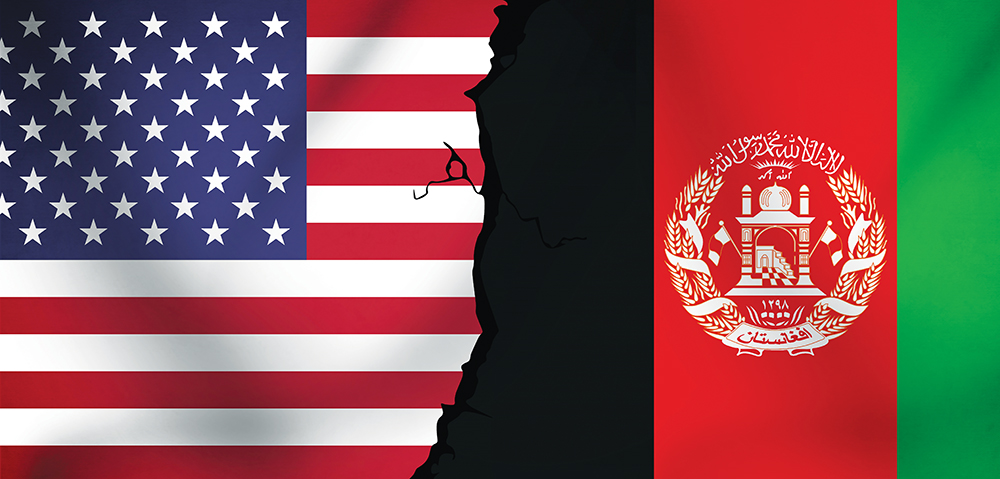A photograph of Sohail Pardis’ bloody, decapitated head is circulating on the internet. On May 12th of this year, Pardis, age 32, was stopped at a roadblock on the highway between Kabul, Afghanistan, and Khost Province. The roadblock was manned by Taliban fighters. Witnesses reported that the Taliban pulled Pardis from his vehicle and cut off his head. Sohail Pardis left behind a 9-year-old daughter.
So why should you care that much about the murder of Sohail Pardis? Most Americans quit thinking about Afghanistan years ago. The war has just been something in the background of our lives for some time. Here’s why you should care about the murder of Sohail Pardis. He was murdered because of what he did for our country. Almost a decade before his murder, Pardis served as an interpreter for 16 months with U.S. forces in Afghanistan.
In a story published by CNN on its website on July 23rd, Pardis’ friend Abdulhaq Ayoubi said Pardis had been receiving death threats from the Taliban: “They were telling him you are a spy for the Americans, you are the eyes of the Americans, and you are infidel, and we will kill you and your family.” This was not an idle threat for Pardis, and it is not an idle threat in general. Since 2014, No One Left Behind, an advocacy group for Afghan and Iraqi interpreters, estimates that approximately 300 Afghan interpreters and family members have been murdered by the Taliban.
In 2006, our government began a Special Immigrant Visa (SIV) program for Afghan and Iraqi interpreters and their families. Congress intended that applications for SIVs were to be processed within months, but most applicants must wait at least three years for a decision on their applications. Many have been waiting for years longer. Successive administrations have allowed a great backlog of pending cases to pile up. When President Biden announced on April 15th that the U.S. would withdraw its forces from Afghanistan by September 11th, almost 18,000 Afghan interpreters and their families were waiting for a decision on their applications.
The president made no provisions for those Afghan interpreters and their families in his withdrawal announcement. The withdrawal has moved quickly, and Taliban has made significant advances since the president first spoke. Fearing for the lives of our comrades and their families, American veterans and other concerned Americans began to speak up. We talked to the media and we wrote opinion pieces. We emailed our congressmen and our senators, and we emailed the president. We demanded the evacuation of those Afghans who had served with us, for so long and so well.
We’ve been heard, to some extent. On July 8th, President Biden told those Afghans who served with us as interpreters, cooks, and drivers “[t]hat there is a home for you in the United States.” On July 14th, the Biden administration announced the launch of “Operation Allies Refuge,” a program of relocation flights for Afghans and their families who have pending Special Immigrant Visa applications. Evacuation would begin in the last week of July, and 2,500 interpreters and their families, whose visa applications were all but complete, would be flown to Fort Lee in Virginia for final processing. Talks were reportedly underway with third countries to temporarily house those Afghans and their families, whose visa applications are not as far along.
On July 22nd, the U.S. House of Representatives passed the bipartisan ALLIES Act, by a vote of 407-16. The legislation will increase the number of annual Special Immigrant Visas by 8,000 and will streamline the complicated SIV process. Congressman Steve Cohen was a co-sponsor of the ALLIES Act. Local Republican Congressman David Kustoff voted for the act.
Our Afghan comrades and their families are not out of jeopardy yet. Evacuation flights were to begin in this last week of July. As of today, July 27th, flights have yet to begin. The 2,500 interpreters and their families who will be flown to Fort Lee represent just a tiny percentage of the thousands of Afghans and their families who have pending SIV applications. The evacuation planes will fly out of the airport in Kabul; those Afghan interpreters and their families who live in Afghan cities and towns other than Kabul will have to run the gauntlet of Taliban roadblocks to get to Kabul.
Much remains to be done before our country makes good on its promises to those Afghans who stepped forward to serve shoulder to shoulder with U.S. forces in the war. It’s too late to save Sohail Pardis, but it’s not too late to deliver on that promise to thousands of other brave Afghans and their families. If you think our country’s word ought to mean something, then contact President Biden. Contact your senators and your representatives. Tell them it’s time to give those who helped us a chance to restart their lives in the United States of America.
Kevin R. Rardin is a retired Lieutenant Colonel, U.S. Army Reserve.
